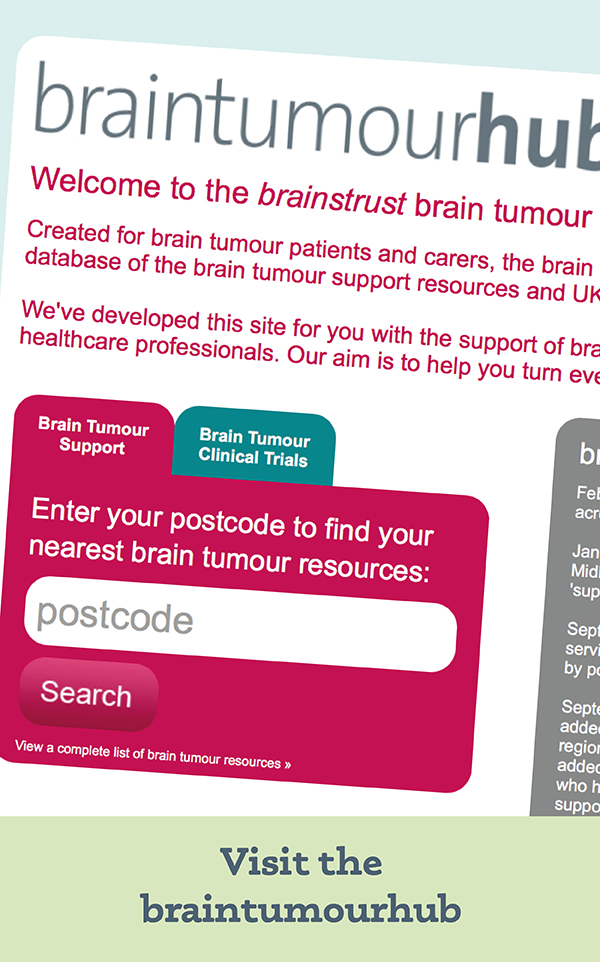Travelling
Having a brain tumour diagnosis can impact a number of aspects of life, including travelling and going on holiday.
On this page you will find information about the support available to help you with travel options for day to day life and for hospital appointments, and information about travel insurance for when you go on holiday.
Travelling to appointments at the hospital
When you are diagnosed with a brain tumour, this may involve regular hospital appointments, especially if you are having treatment such as radiotherapy.

If you have had to surrender your driving licence because of your brain tumour diagnosis, this can often mean having to rely on somebody else taking you to the hospital or use public transport or taxis.
If these are not viable options, or the cost of travelling becomes unaffordable for you, there may be options available to you that can help with this.
Find out about NHS services to help with travelling to hospital
Hospital car parking charges
Hospital car parking policies can vary across the UK, so it is best to double check the policy of the hospital your will be visiting in advance.
In England, many hospitals offer free parking for people with cancer, or a discount. This isn’t always well advertised, and in some hospitals it may only be in a certain area, so try and find this information out before you travel.
In Scotland, hospital parking is free at all hospitals apart from Glasgow Royal Infirmary, the Royal Infirmary of Edinburgh and Ninewells Hospital in Dundee.
In Wales, hospital parking is free for everyone.
In Northern Ireland, hospital parking is free at all hospitals if you are having chemotherapy or radiotherapy.
Driving
Driving is a topic that is frequently spoken about among our community. When you are diagnosed with a brain tumour of any type, and you hold a valid driving licence, you must inform the DVLA of this. Once you let them know, they will then assess whether you have to surrender your driving licence. This decision is based on many different things, including the tumour type and your treatment pathway.
Our ‘Driving’ Know How goes into more detail about the process of contacting the DVLA and how long you may have to surrender your licence for.

We know that the prospect of having to surrender your driving licence is a big challenge. It can mean a loss of independence, and the uncertainty of when you may be able to resume driving can cause feelings of anxiety. Below, you will find some information on some alternative travel options while you are not able to drive.
Travel assistance
If you are struggling with symptoms caused by a brain tumour, you may be entitled to help with some aspects of travel and getting around. In some cases, this may help to make day-to-day living a little easier.
While a brain tumour diagnosis doesn’t give you an automatic entitlement to any of the schemes outlined here, it is always worth looking into your eligibility according to your symptom burden. Most of the items listed below require you to prove eligibility for certain disability benefits.
You can link your Disabled Person’s Railcard to your Oyster card to get a third off Oyster pay-as-you-go single fares and daily caps on National Rail, London Underground and Docklands Light Railway services. Register at any London Underground, Overground or National Rail station ticket office that issues Oyster cards.
You can link your Disabled Person’s Railcard to your Oyster card to get a third off Oyster pay-as-you-go single fares and daily caps on National Rail, London Underground and Docklands Light Railway services. Register at any London Underground, Overground or National Rail station ticket office that issues Oyster cards.
If you live in a London borough, you can apply for a Disabled Person’s Freedom Pass to gain free travel across London and free bus journeys nationally. Some boroughs offer passes at their discretion to people who do not meet the eligibility criteria.
Contact your local county council to apply for a free bus pass.
what3words is a free app that helps you to easily and accurately identify your location to the emergency services. This could potentially be very useful if you have seizures and going out alone is a worry for you. Search ‘what3words’ in your phone’s app store.
Displaying a Blue Badge allows you to park in disabled parking bays, often meaning that you can park closer to your destination.
You may be eligible for a Blue Badge if you cannot walk or have difficulty walking, and can evidence this in your application.
Additionally, the criteria have recently been expanded so that people with ‘invisible’ disabilities are now potentially eligible for the scheme. This means that in addition to physical disabilities, non-physical disabilities, including cognitive impairment, psychological effects, such as feeling overwhelmed by busy or loud environments, and cognitive fatigue, are now taken into account.
Check your eligibility and apply here https://www.gov.uk/apply-blue-badge (England, Wales & Scotland) or here https://www.nidirect.gov.uk/information-and-services/motoring-and-transport/blue-badge-scheme (Northern Ireland).
If treatment can give you an unpredictable stomach, or if you suffer from sickness, it can make the thought of going out anywhere new really challenging. A RADAR key offers you access to the 10,000 locked disabled toilets in the UK, making going out in public far less worrying.
More information about the RADAR National Key Scheme and accessible toilets is available here: https://www.which.co.uk/later-life-care/home-care/out-and-about/radar-keys-and-locked-toilets-apsxd1p6br8k?gclid=CjwKCAiAwrf-BRA9EiwAUWwKXoro-oWYtTw0O8IDbvFYqsWt973kql_cj5v-YWXtjf7HRSAIkYPsQhoC4EEQAvD_BwE
Travel insurance
When looking for some time away, travel insurance is something that we know can be a challenge when you have a brain tumour. The brain tumour hub has a list of travel insurance companies that will provide cover for people with pre-existing medical conditions.
Find travel insurance providers
Practical travel advice
If you are travelling abroad following a brain tumour diagnosis, you may find that you have more things to think about to help you prepare for your holiday.
Find out more about specialist travel insurance, as well as supported holiday resorts and respite breaks on the brain tumour hub.










